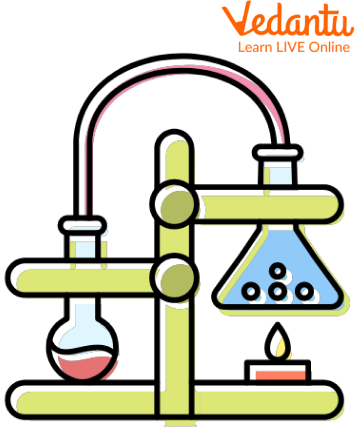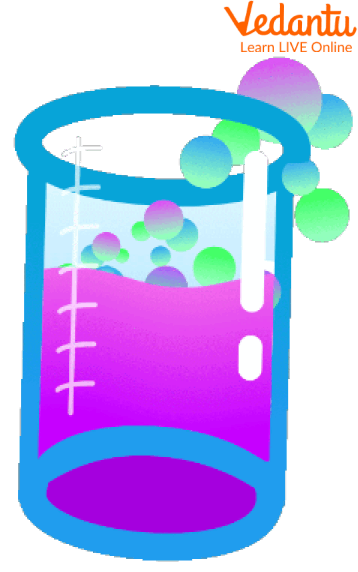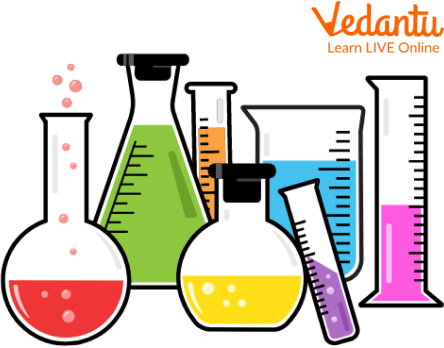




What Are the Must-Know Chemical Reactions and Why Do They Matter?
What comes to your mind when you hear the word ‘chemical reaction’? If explained in simple words, chemical reactions are nothing but a process in which one or two substances can be converted into different substances. Now, this is getting exciting, isn’t it?
When studied in depth, a chemical reaction can be quite complex and boring. But, surely, we won’t go that deep for the kids. We will talk about chemical reactions, example of chemical reactions and what happens when a chemical reaction take place, and much more.

Chemical Reactions
What is a Chemical Reaction?
Chemical reactions take place when a chemical bond between atoms is broken or formed. In simple words, a chemical reaction is a process that takes place when two or more molecules collide with the exact orientation and right amount of force to form a new product.
In today’s world, chemical reactions are not only an essential part of technology but also of our culture and our way of life as well. In basic things of life like making pottery, burning fuels, brewing beer, and making wine and cheese we incorporate chemical reactions and have been doing it for years now.
Important Terms
Some important terms related to Chemical reactions are as follows:
Reactants: The compounds which interact to produce new compounds are known as reactants.
Products: The compounds which are newly formed after the interaction of compounds is known as products.
Chemical Equation: It is a mathematical statement signifying the formation of the product from reactants.
Reaction Rate: The speed at which the reactants turn into products is called a reaction rate.
Interesting Facts About Chemical Reactions
Some interesting facts about chemical reactions are as follows:
The mixtures and the solutions are completely different from the chemical reactions, even though the molecule of the substances remain the same.
When there is a series of reactions because of one reaction, then it is called a chain reaction.
All chemical reactions take their own time. Some reactions occur quite fast like an explosion and at the same rate but some reactions can take a long time.
It is quite an interesting fact about chemical reactions that you can change the reaction rate if you add certain energy like sunlight, heat, or even electricity.
Adding energy to any reaction can increase the reaction rate remarkably.
Interesting Chemical Reactions
There are quite a few simple experiments that kids can perform easily at home or school to learn. They can see whether the substance changes into another or if the colour changes, or shape, or if there is an explosion or not. So kids are you ready to learn new experiments and to make a mess? Let us begin.
Chemical Poppers

Shake and See the Magic
Kids, put some baking soda and vinegar in a plastic container and see what happens. There will be poppers everywhere.
Red Cabbage

Create your Rainbow
For this activity make sure that an adult is present.
For this experiment, you will need red cabbage, a sharp knife, a cutting board, hot water, 7 clear disposable cups, 7 plastic spoons, and a large bottle. Vinegar, lemon juice, cream of tartar, shampoo, soda bicarbonate, floor cleaner, and dishwasher liquid.
Using a sharp knife and cutting board slice three or four cabbage leaves and place the leaves in plastic bottles filled with hot water and place the lid tightly. Keep shaking the bottles till the water turns into a deep pupil colour. Leave it to cool. In each of 7 cups add a little of the above-mentioned household ingredient and fill the coloured water and mix.
You will see that the cups will display a spectrum of colours from cherry red, pink-red, lilac, purple, blue, green, and yellow.
This experiment shows that the food that we eat contains acid and a very common group of compounds
Bath Bombs
Are you not amazed to see how bath bombs melt the minute they are put in the water?
All you need is food colouring, body glitter or petals, almond oil, scented oil, 10 spoons of soda bicarbonate,3 spoons of citric acid, 2 large mixing bowls, 1 muffin tray, 1 glass jar, rubber gloves, spoon.
Grease the muffin trays with almond oil. In a large bowl mix citric acid and soda bicarbonate and form a base mixture. Put half of the mixture in another bowl. Now add glitter or flower petals to the base mixture. In the glass container add scented oil, almond oil, and food colouring. Put the oil mixture in the oil mixture and quickly mix it wearing gloves. Now spoon the mixture into the muffin tray and press down firmly. Leave the tray to set for a few days. Run a bath and drop in the bomb and see the magic!

Create your Bubble
Summary
In this article, we have discussed chemical reactions, some important terms, interesting facts and also some examples of Chemical Reactions. A chemical reaction is a procedure in which an arrangement of substances goes through chemical changes to form or create a new substance. They are one of the most important events in the universe. It is because of the chemical reactions that we, humans and animals can grow, heal, think and digest.
FAQs on Interesting Facts About Chemical Reactions
1. What are some fun facts about chemical reactions?
Here are a few surprising facts about chemical reactions:
- Not all reactions are fast; the rusting of iron is a chemical reaction that can take years to become noticeable.
- Your own body is like a chemical factory, with thousands of reactions happening every second to keep you alive.
- Some animals, like fireflies, use a special chemical reaction called bioluminescence to produce light and glow in the dark.
2. Do chemical reactions only happen in a science lab?
Not at all! Chemical reactions are happening all around you, every single day. Simple activities like cooking an egg, baking a cake, burning a candle, and even the digestion of your food are all common examples of chemical reactions that take place far away from a laboratory.
3. How can you tell if a change is chemical or just physical?
The main difference is that a chemical change creates a completely new substance, while a physical change only alters the form or state. To spot a chemical reaction, look for signs like a change in colour, production of a gas (bubbles), release of heat or light, or the formation of a new solid.
4. Is boiling water a chemical reaction?
No, boiling water is a classic example of a physical change. When water boils, it turns from a liquid into a gas (steam), but its chemical identity as H₂O does not change. A chemical reaction would involve the water molecules breaking apart and forming new substances.
5. What's an interesting chemical reaction that happens when we cook?
A fascinating reaction in the kitchen is the Maillard reaction. This is the chemical process responsible for the browning of food and its delicious flavour when you toast bread, grill meat, or roast vegetables. It's a reaction between amino acids and sugars that occurs with heat.
6. What would happen if chemical reactions suddenly stopped?
If all chemical reactions stopped, life as we know it would be impossible. We couldn't digest food to get energy, plants couldn't perform photosynthesis to grow, and nothing would ever burn, rust, or decay. The world would be static, as atoms would not be able to rearrange to form new matter.
7. Why is digestion considered a chemical reaction?
Digestion is a series of chemical reactions because it breaks down large, complex food molecules into smaller, simpler molecules that the body can absorb. Special proteins called enzymes in your stomach and intestines cause these chemical changes, transforming food into the energy and building blocks your body needs.









